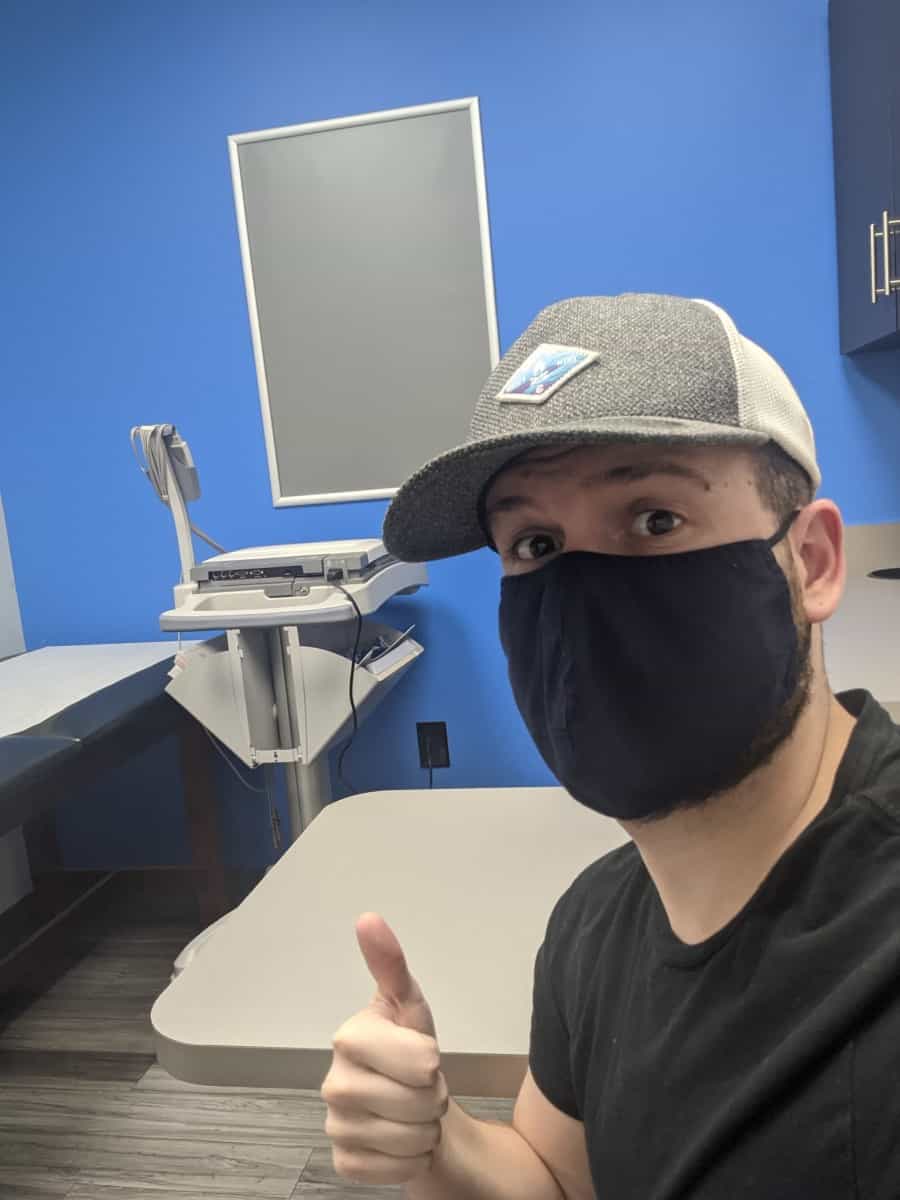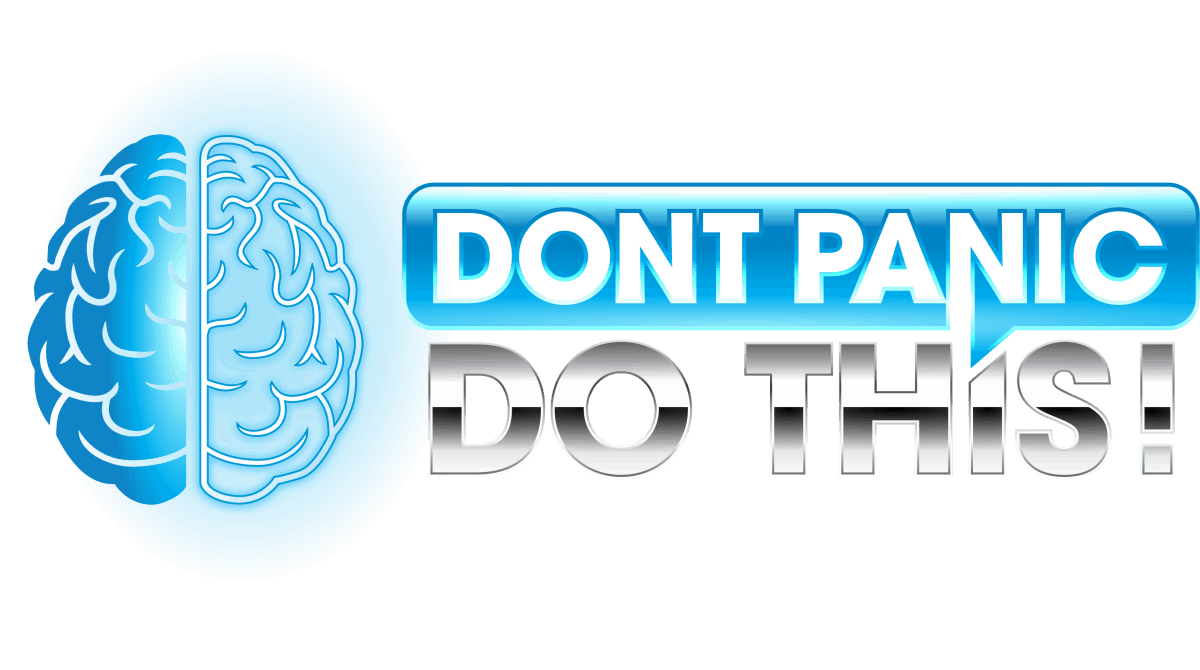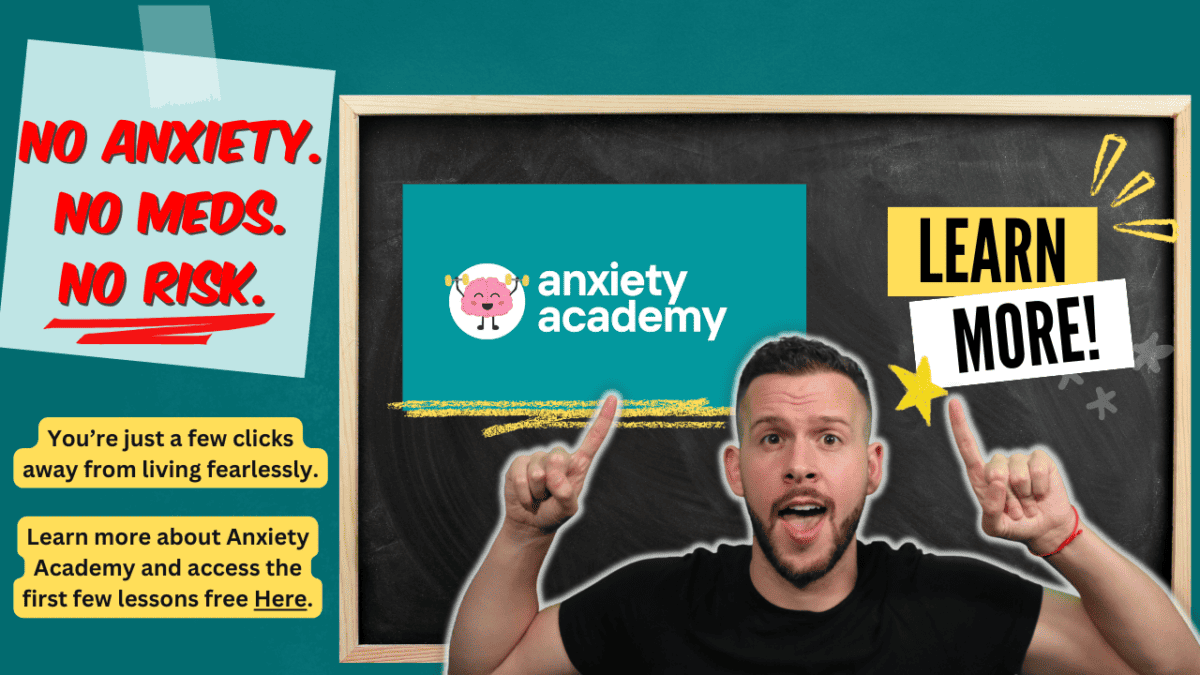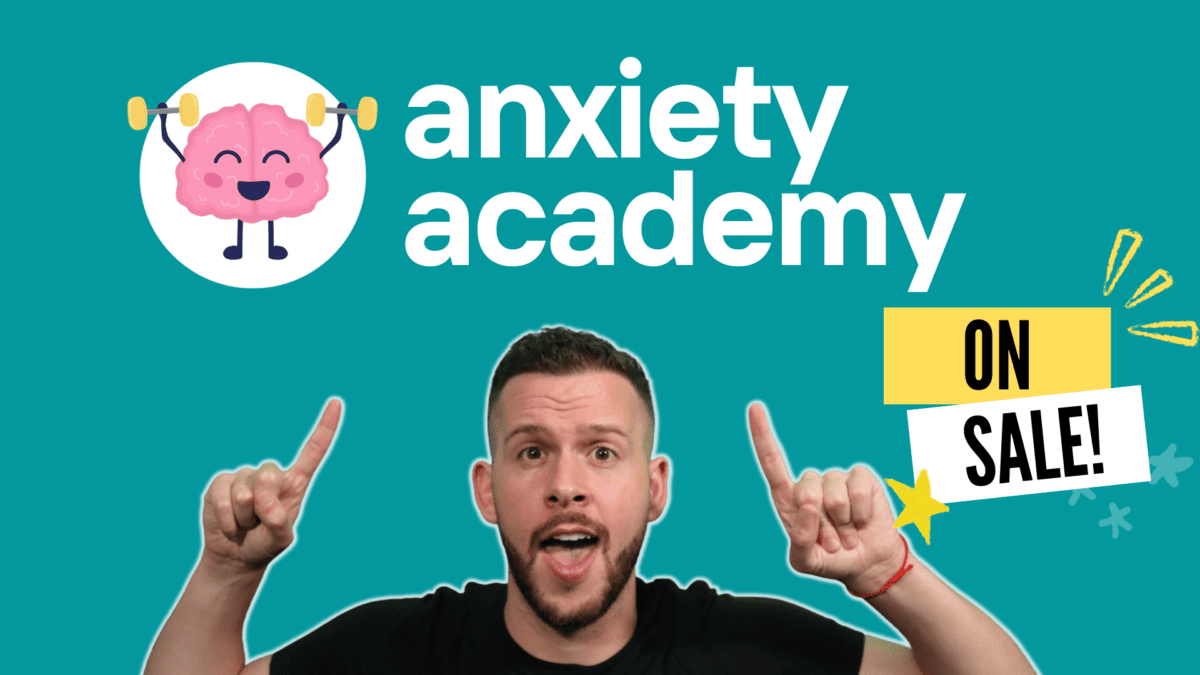My very first panic attack was caused by a harmless heart palpitation that led me to overanalyze my heart rhythm to the point of severe anxiety. Afterward, I desperately sought answers regarding the cause of these palpitations. One question I was forced to investigate was, can anxiety cause irregular heartbeat?
Anxiety can absolutely cause an irregular heartbeat. Heart palpitations and arrhythmias are very common and often harmless phenomena that do not require treatment. An irregular heartbeat can also be caused by physical or emotional stress, dietary factors, or drugs like caffeine and nicotine.
For those of us without a medical background, anything seemingly abnormal about our heart rhythm can be terrifying. In this article, I hope to shed some light on the facts about anxiety and irregular heartbeats.
Everything that follows is what I wish someone told me when I experienced heart palpitations and panic attacks for the first time.
Heart Palpitations vs Arrhythmias
Alright, first, let’s get some basic vocabulary out of the way here.
Most people reading this will not have the advantage of a medical background (myself included… so please remember that I am not a doctor!). I’d like to explain irregular heartbeats as concisely as possible.
Let’s start with a few key terms:
Heart Palpitation – a palpitation is our perceived awareness of an irregularity in our heartbeat. When someone has a palpitation, they are usually claiming to feel a “flutter,” “flip-flopping,” skipped beat, pounding heart, rapid heart rate, or another type of irregular heartbeat. A palpitation is a symptom of an arrythmia.
Heart Arrhythmia – this refers to a group of conditions causing the heart to beat too fast, too slow, or otherwise irregularly. Usually this means a resting heart rate below 60bpm (bradycardia), above 100bpm (tachycardia), or involving extra beats. Typically, “arrhythmia” is just another word for “irregular heartbeat.”
Basically, a palpitation is more of the “feeling” that your heartbeat is off. Sometimes we are right about this feeling, but other times it’s just our anxiety playing tricks on us. When accurately perceived, a palpitation can be a symptom of a genuine heart arrhythmia, or irregular heartbeat.
Anxiety can cause an irregular heartbeat (as either a palpitation or an arrhythmia), but it’s important to rule out other causes, first.
But before we talk about how to figure out if your anxiety is the cause of an irregular heartbeat, I’d like to share my own story with heart palpitations and anxiety.
My Heart Palpitation Story
I started having my first heart palpitations in early high school, probably around my sophomore year or so. This was only shortly before my first panic attack.
Much like anxiety, there are many hidden factors that can contribute to heart palpitations; so, to this day it’s still hard for me to pin down exactly what caused my first few. In all likelihood it was a combination of hormonal changes, teenage social anxiety, and the ridiculous amount of caffeine I drank each day.
Whatever the cause was, I began to occasionally feel a sort of uncomfortable “flutter” in my chest. They’d only last a second, and I could only describe the strange feeling as a skipped or irregular heartbeat. They didn’t have any direct of obvious trigger, as I’d experience these palpitations completely randomly, even while completely relaxed and playing videogames alone in my room. I’d later learn that these feelings were harmless, but at the time I had never even heard of a palpitation before.
Naturally, hypochondria kicked in and I assumed these heart flutters must be indicative of a serious heart condition. One day I had a few heart palpitations in a row and it sent me into a panic. This was my first panic attack, and probably the scariest experience of my life. More than a decade later and I still remember how I laid on the couch gasping for air, genuinely believing that I was going to die.
Of course, moments later, the panic attack passed and my anxiety was under control. Although, I now had more questions than answers. I still needed to figure out why my heart was doing this, and what I could do to make it stop.
How to Know if Anxiety is Cause of Irregular Heartbeat
If you know you’re prone to anxiety and panic attacks, you’d do well to remind yourself of this fact before you work yourself up. That was my first mistake as a kid. Keep calm and remember that palpitations and arrhythmias are very common and are typically harmless.
You can literally breathe a certain way and it can cause a (harmless but uncomfortable) heart palpitation, so relax.
But, while we don’t want to panic prematurely, you will still want to talk to your doctor and possibly have them run some tests to make sure your palpitations or irregular heartbeat are not the result of a more serious underlying medical condition.
Don’t worry, these tests are quick, easy, and non-invasive.
Aside from taking your vitals when you get to the office, your doctor will most likely want to examine your heart rhythm via an electrocardiogram (ECG or EKG). This test should take less then 10 minutes total, and can be performed in most regular primary care offices. Some electrodes are attached to different parts of your body (torso, arms, and legs) and a computer records your heart rhythm. It’s a pretty quick procedure.
I have had an EKG done twice in my life to make sure my heart rhythm is good and healthy. Once when I was in high school and having my first few palpitations, and another just this year (more than a decade later) just as a preemptive check-up.
You may find it comforting to know that I still have occasional palpitations, but they are completely normal and harmless. Both times I got an EKG, my results came back perfect.
Here I am with the EKG machine in the background just before my most recent test:

Now, you might still be wondering… what if nothing shows up on the EKG but you weren’t experiencing a palpitation in that moment – could the machine have missed something?
For anyone still nervous after an EKG, you may request a Holter monitor test from your doctor. A Holter monitor is a mobile machine that you can wear for 24 hours, which will monitor your heart rhythm over a longer period of time. This can help to catch any occasional palpitations or heart irregularities you may be nervous about.
I recommend that anyone who is nervous about their palpitations or arrhythmia talk to their doctor about running these tests. Even in my case where the tests showed no irregularities, the peace of mind I got from knowing that my palpitations were normal was enough to significantly decrease my own stress, anxiety, and palpitations.
How Anxiety can Cause an Irregular Heartbeat
It’s not always clear how anxiety causes irregular heartbeat, since we can sometimes experience palpitations and arrhythmia even when we are not immediately anxious.
It is likely that palpitations and arrhythmia can occur due to fluctuations in stress hormones and other components of anxiety that can remain hidden and sneak up on us over time. Palpitations caused by anxiety are typically harmless and resolve themselves in a matter of seconds.
Severe anxiety, or panic attacks, often trigger our fight or flight response in such a way that causes our heart rate to increase. These physiological symptoms of anxiety can often be confused for a heart condition or an arrhythmia like tachycardia due to our fast heartbeat.
In my own experience, overthinking my body’s automatic processes (things like heart rate and breathing) would tend to increase my likelihood of having palpitations.
You may also want to keep in mind that, when you’re feeling anxious, you’re more likely to “jump at shadows,” and imagine symptoms. In the case of palpitations, you may be more likely to notice and focus on harmless bodily functions that other people experience but pay no mind to.
How to Stop Heart Palpitations Naturally
Anxiety can cause irregular heartbeat, but so can a number of other factors. Here are some things to do and some things to avoid to stop heart palpitations naturally:
- Stay Hydrated
- Avoid Alcohol and Nicotine
- Quit Caffeine and Other Stimulants
- Exercise Regularly
- Take up Meditation or Yoga
- Maintain a Healthy and Balanced Diet
- Educate Yourself About Anxiety
- Learn How to Stop Panic Attacks
*Of these methods, I specifically want to mention the role of caffeine in my own heart palpitations. When I experienced my first few heart palpitations as a kid, I was regularly drinking caffeinated iced tea like a fish. In my adult life, I had two nights of horrible heart palpitations last year after quitting caffeine. You can read my full story of quitting caffeine here. The withdrawals were horrible and I was able to link my palpitations to caffeine in a way that has led me to avoid caffeine ever since.


